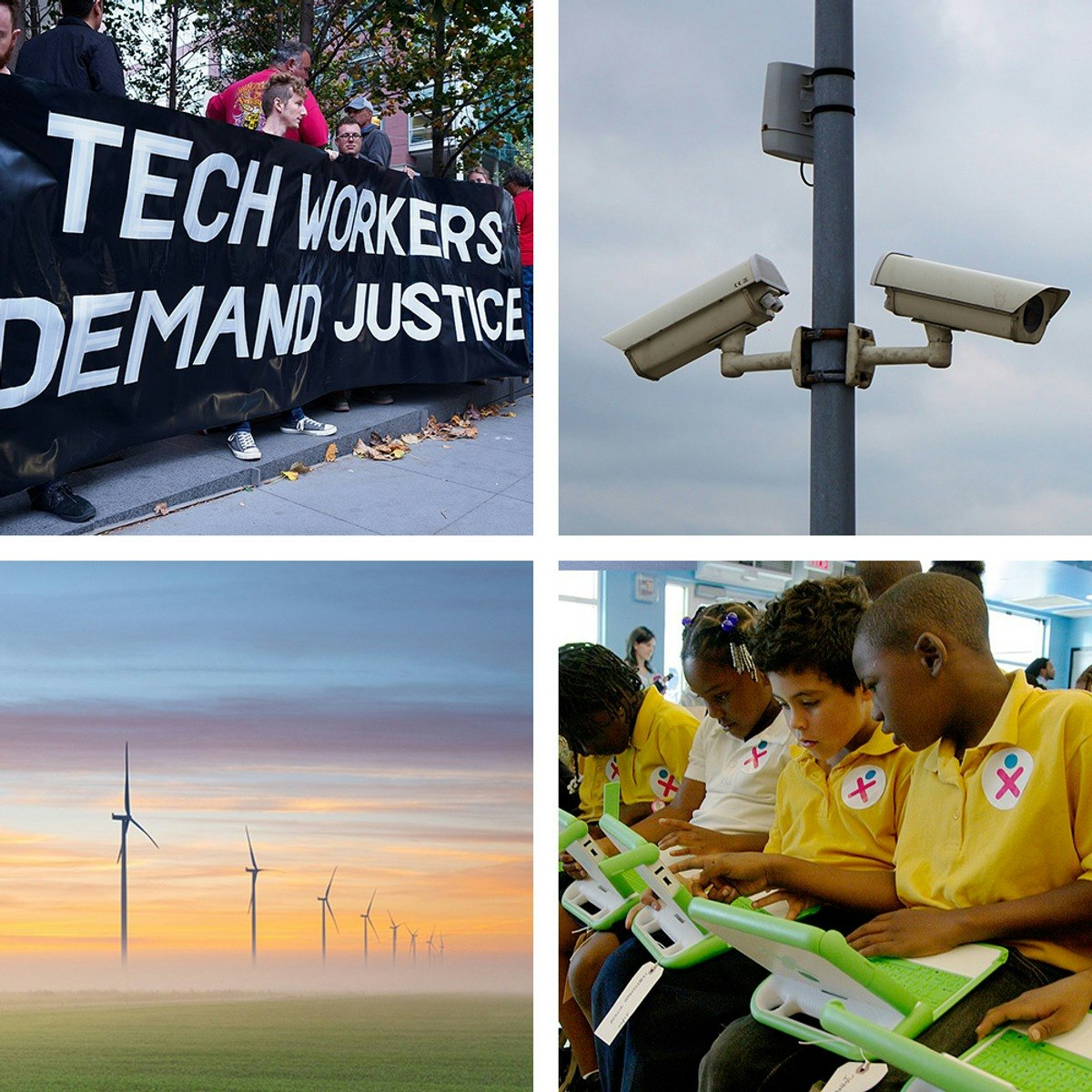Back to Courses









Social Sciences Courses - Page 49
Showing results 481-490 of 672

Orchestrating Whole Classroom Discussion
This course offers strategies that can lead to richer, more productive, whole-class discussions in their classrooms. Focusing on how to prepare for discussion, this course is for anyone who leads, wants to lead, or is interested in how teachers lead discussion.
Across the 4 sessions in this course, we’ll learn more about what teachers and students need to do to prepare for rich discussions, including understanding:
1. What is (and isn't) discussion, and why discussion is important
2. How teachers set goals for discussion, and establish explicit norms that support these objectives
3. How teachers select texts and prepare text-based questions to guide the conversation
4. How teachers – based on these goals, norms, texts, and questions – then prepare students for the whole-class discussion
The course consists of short videos interspersed with various thinking tasks—such as reflecting on videos of classroom discussions in action, and designing and receiving peer feedback on aspects of a Discussion Plan, a plan for a discussion you’ll lead in your own classroom.

Chinese Politics Part 2 – China and the World
One of the most significant changes in the world in the past 30 years is the opening of China to the outside world and its engagement with that world. In the initial years of the opening, external forces influenced China’s economy, regional balances, bureaucracy, as well as the political authority of local leaders in the coastal areas. More recently, the world is feeling the effects of a rising China which seeks resources and talent from all around the globe and uses its financial wealth to strengthen its position in the world. This course tracks the opening of China up from 1978 until it joins the WTO, focusing on how the world affected China’s internal development. We then look at various aspects of China’s “going out strategy” — its search for energy, talent, as well as its relations with the United States and the states within the Asia-Pacific region. The instructor has been deeply engaged in research on all these topics, having lived in China during various stages of China’s opening to the outside world.
Course Overview video: https://youtu.be/7FpNL67EbE4

Justice and Equity in Technology Policy
More than ever, technology is shaping, and being shaped by, public policy. This has an enormous impact, particularly for marginalized communities. The artificial intelligence and computer algorithms increasingly driving government and industry decisions—from the allocation of social services to hiring—are reflecting and reinforcing social biases towards women, people of color, and disabled people, among others. Global climate change is having a disproportionately negative impact on low- and middle-income countries, and on historically disadvantaged communities of color in the United States. Communities are increasingly concerned they are not benefiting from government research funding, and that the regulation of emerging technologies is inadequate.
The interconnectedness of technology, policy, and equality raises crucial questions for scientists, technologists, and leaders in public policy, civil society, and industry. How can technology be built, implemented, and governed more equitably? How can the concerns of marginalized communities be integrated better into technology and related policies? How should community knowledge and concerns be integrated with technical expertise and scientific evidence in the development of public policies?
This course will center equity and justice in the development and implementation of technology and science public policies. In particular, we aim to help learners understand how inequities can become embedded in technology, and associated policies, and how this can be addressed.
Combining real-world cases with scholarly insights, this course introduces learners to these challenges and offers tools for navigating them. You will learn about:
- The landscape of technology policymaking
- How technology, and related policies both reflect and reinforce social values, biases and politics
- The power and limitations of technology in solving social problems
- New ways to think about “experts” and “publics”
- The politics of innovation policy
The course is designed for people from diverse professional, advocacy, and academic backgrounds. No scientific, technical, or policy background is necessary.

Introduction to English Common Law
The common law of England and Wales is one of the major global legal traditions.
This MOOC will give you an introduction to this influential legal system including its history, constitutional background, sources and institutions. You’ll learn about the different ways in which laws are made and interpreted, the English court system and the increasing importance of European Union and human rights law. Now is an especially exciting time to be learning about English common law, given the potential changes that lie ahead in today’s political, economic and social environment – all these pose challenges to and opportunities for the law.
Each week we’ll focus on one aspect of English common law, using video lectures, readings, discussion questions and activities to enable you to learn about and evaluate key issues. Whether undertaken as a standalone course, or as preparation for the University of London’s world-class LLB degree, you will find this course interesting and stimulating.
Please note that participation in or completion of this online course will not confer academic credit for University of London programmes.

Alternative Mobility Narratives
Ready to imagine a radically different mobility future? This course is about the stories that we tell ourselves about why and how we move. By critically examining our current narratives, we help you think about mobility in a new way. Using systems dynamics modelling, we explore how a mobility innovation (of your choice) impacts our mobility system as a whole, for better or for worse. This course will invite you to reflect on our mainstream mobility narrative built on engineering and economics. But warning: you may end up never looking at mobility in the same way again!
This online course is supported by the EIT Urban Mobility’s Competence Hub. EIT Urban Mobility is an initiative of the European Institute of Innovation and Technology (EIT) that has been working since January 2019 to encourage positive changes in the way people move around cities in order to make them more sustainable and liveable places.

Time to Reorganize! Understand Organizations, Act, and Build a Meaningful World.
We are in constant relationship with many organizations. Our world is submitted to regular changes as organizations evolve, come and go. Understanding your memberships and attachments to organizations will help you act on your world. You'll learn how to evaluate the influence of organizations around you and how to transform your relationships to reach a stronger coherence.
Do you feel sometime that the world around you is disorganized? Can you make sense of all the information at your reach and have an impact on this situation? Have you ever thought that this conundrum may be due to all the organizations that emerge, strive or wane, and disappear every day?
Organizations are ubiquitous, from clubs and associations to firms and public agencies. Organizations confer meaning to all of us, and our attachment and membership to organizations have a profound effect on all areas of our lives. But in our increasingly turbulent world, these organizations run the risk of disappearing or losing their legitimacy, steering a sense of pointlessness and absurdity.
This course develops an integrative approach to understanding organizations and their behaviors, termed ‘orgology’. It explains that organizations can act strategically to protect and renew the sense of membership and attachment of individuals. So doing, organizations that survive and thrive impose their logics of action onto society, thereby influencing what is legitimate or not.
In turn, individuals, you, all of us, must reinterpret our multiple associations with organizations and contribute to reinforce or inhibit social evolutions. This new way of understanding organizations’ relationships with society results in reconsidering management and the role of individuals in building their future.
There is no prerequisite to this course, you are all welcome ! Students and people interested in the fields of management, sociology, strategy, economics leadership etc… will benefit a lot from this course.
For the session of this course starting on January 11th, Professor Rodolphe Durand will actively be participating and interacting with learners. He will be offering "office hours" sessions through google hangouts and answering learner questions from the forums. We hope this direct interaction will add to your learner experience! Please enroll today!

What is Climate Change?
In this course, learners will become familiar with the scientific evidence that demonstrates human-caused climate change. We will explore how greenhouse gases cause the Earth to warm, and why our recent warming is attributed to human activities. We will also discuss where our climate is headed, including anticipated future temperature, precipitation, and sea level. Learners will engage with the consequences of these changes on our ecosystems, infrastructure, and communities. We will also identify how political beliefs influence our attitudes about climate change, and apply that knowledge to become better climate communicators.

Community Awareness: What is a Socially Just University
The course assumes that higher education is a gateway to the resources of society and that there is a need for institutions to become more socially just for all groups, with emphasis on low-income and minority populations that are traditionally underrepresented.
The course includes sessions with institutional leaders about higher education and American society, diversity and inclusion in learning and teaching, professors and students as change agents, socially-just research, and struggles for equity and justice on campus and in communities.
Illustrative modules include: What is a university? What is the role or potential role of universities in making societies more socially just? Do present universities contribute to inequalities and injustices and, if so, how? What changes are needed now?
Sessions will draw upon initiatives at the University of Michigan for starters, and we also will draw upon other educational leaders nationwide

Understanding the Australian economy: An introduction to macroeconomic and financial policies
This four-week, four-module course explores selective aspects of the Australian economy, with emphasis on macroeconomic and financial policies. The course introduces participants to several key attributes of the Australian economy and discusses how they are influenced by both domestic and international forces. We will examine some of the key issues and dilemmas facing the Australian economy and how policymakers can deal with them using monetary and fiscal policies. There will also be a discussion on the still-fresh 2007-2010s global financial crisis, the lessons learned, and how policymakers deal with the aftermath. Discussions will be centered around sound economic theories and reasoning, and utilize actual data whenever applicable. Applications of the economic reasoning and theories to current, real-world issues pertaining to the Australian economy will also be provided. In addition to conventional lectures, the course also contains several interviews with relevant experts and practitioners. No prior knowledge or training in economics is required.

Communication Skills for University Success
This Specialization is aimed at preparing students for undergraduate study in an English-speaking university. The course equips you for full participation and engagement with your studies by building awareness and understanding of the core values and expectations of academic culture, and providing you with practical strategies to apply to your studies. In this course, you will learn how to develop your Communication Skills to help you achieve success in your university studies. After completing this course, you will be able to:
1. Recognise the importance of communication in communities of practice at university
2. Understand contexts of communication at university and associated expectations
3. Communicate clearly across a variety of different contexts and to a wide range of audiences by adapting communicative styles appropriately
4. Demonstrate, negotiate, and further understanding through spoken, written, visual, and conversational modes
5. Effectively formulate arguments and communicate research findings through the process of researching, composing, and editing
6. Confidently engage in constructive and critical dialogue with respect and professionalism
Popular Internships and Jobs by Categories
Find Jobs & Internships
Browse
© 2024 BoostGrad | All rights reserved